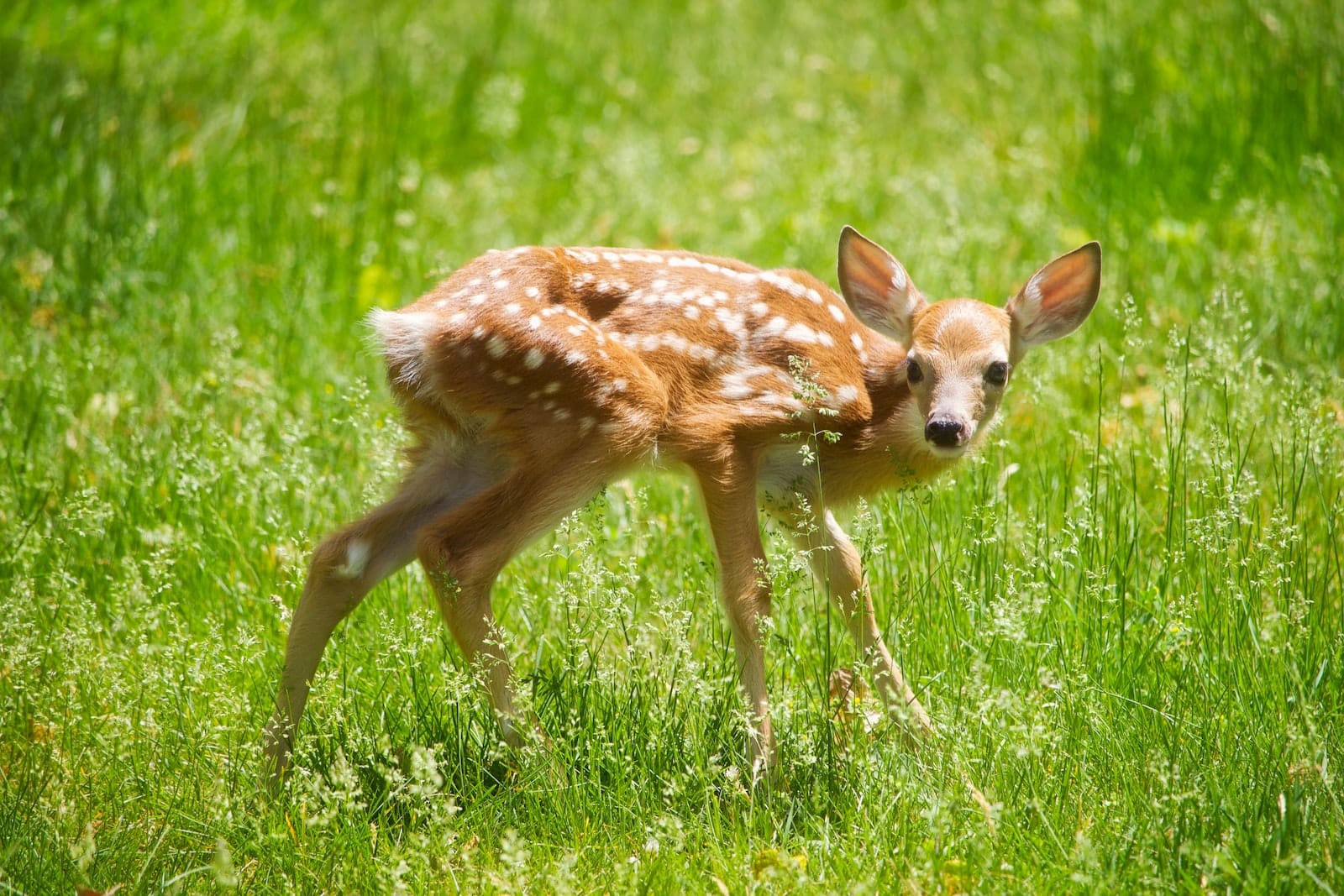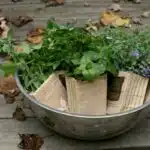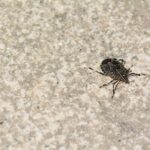Have you ever walked outside to find your beautiful garden, lovingly tended and full of life, completely destroyed by a herd of deer? It’s an all too common situation for many gardeners. Just ask John G., who recently watched as his prized rose bushes were eaten down to their stems in one night. Unfortunately, this kind of destruction is par for the course when it comes to keeping deer out of your garden.
But it doesn’t have to be! With a few simple steps, you can prevent deer from wreaking havoc on your yard and ensure that your plants stay safe and secure. In this article, we’ll discuss five effective ways to keep deer out of your garden—from physical barriers to natural deterrents.
No matter the size or layout of your yard, these methods will help you protect what matters most: Your garden! Keep reading for more information about how you can keep pesky deer away from your precious flowers and veggies.
1. Understand Deer Behavior
What can you do to keep deer away from your garden? Understanding the behavior of deer is key. It’s crucial to understand what draws them in and how to keep them out. But what strategies should you use?
When it comes to deterring deer, there are a few surefire methods. First, start by installing physical barriers. Fencing is an excellent way to keep deer from entering your garden. To make it even more effective, use a double fence with the inner one being higher than the outer one. You can also add motion-activated lights or sprinklers as extra deterrents.
Another effective method is habitat modification. Knowing what attracts deer is important so that you can make changes to your property that will discourage them from coming back. Remove any food sources like bird feeders or fruit-bearing trees and shrubs that might attract the animals and replace them with plants they don’t like, such as yarrow or lavender. Also, incorporate smells that are unpleasant for deer into your garden – things like pennyroyal, garlic or putrescent egg solids could be enough to repel them! With these simple steps, you’ll be well on your way to keeping those pesky deer away from your precious garden!
2. Choose Deer-Resistant Plants
When it comes to protecting your garden from deer, choosing plants that deter them is key. Deer-resistant plants are those that the animals find unappealing or that take extra effort for them to reach. Varieties like yarrow, coneflowers, lavender and even some types of roses can keep deer at bay. It’s important to note, however, that no plant is completely deer-proof; if deer have access to your garden, they may still be tempted by certain species regardless.
In addition to choosing plants that are less desirable to deer, you can also look into planting flowers or trees in clusters or rows. This will create a barrier between the wildlife and your prized plants. You’ll want to make sure these barriers are placed outside of the area you’re trying to protect as well – this will ensure the deer don’t cross over into your flowerbeds or vegetable patch.
Lastly, consider adding some strong-smelling herbs such as rosemary and thyme around the perimeter of your garden. The strong scent of these herbs can act as a natural deterrent for deer looking for a snack in your yard. It’s always best to check with local experts on which varieties may work best in your particular area before planting anything new!
3. Plant Strong-Smelling Herbs
“A stitch in time saves nine” – a timeless adage that applies to many situations. When it comes to protecting your garden from deer, preventive measures are essential. Planting strong-smelling herbs is one such measure that can help keep deer away.
Herbs like lavender, rosemary, and mint have strong fragrances that deer don’t like. If you plant these around the perimeter of your garden, they will act as a natural deterrent and drive the deer away. It’s also important to mix the plants so that the scent isn’t too concentrated in any one area; this will ensure the fragrance sticks around for longer and keeps the deer away. Make sure to use only organic fertilizers or composts on these plants too, as chemical fertilizers may reduce their potency and make them less effective in keeping deer away.
Not only are these herbs an effective way to repel deer, but they also provide additional benefits like attracting pollinators and enriching your soil with nutrients. So if you want to protect your garden from pesky deer without using harsh chemicals or other methods, planting strong-smelling herbs is a great option! From here we can move on to discuss another useful method for keeping deer out of your garden: installing fencing around it.
4. Install Fencing Around Your Garden
Ah, fencing! A gardener’s dream! There’s no better way to keep deer out of your garden than a protective fence. And not just any fence – this is a strong, reliable barrier that’ll keep even the most determined deer away. It’s like a fortress between your precious plants and the hungry herd!
Installing fencing around your garden is simple, affordable, and highly effective. You can choose from a variety of materials: metal, wood, or netting. They come in all shapes and sizes to fit any budget – you could even get creative and make your own design! To maximize effectiveness, be sure to bury the fence at least 6 inches deep into the ground. This will prevent those pesky critters from jumping over or digging underneath it.
So if you’re looking for an effective solution for keeping deer out of your garden, look no further than installing a sturdy fence around it. Not only will it help protect your beloved plants from being eaten by deer, but it’ll also provide some much-needed peace of mind knowing that they’re safe and secure in their own little corner of paradise.
5. Utilize Netting And Mesh
Netting and mesh are like a fortress guarding your garden. They form an impenetrable barrier to protect your plants from the hungry deer. The netting and mesh can be draped over plants or surrounding your garden bed as an effective deterrent. It should be strong enough to withstand the occasional gust of wind, as well as nibbling critters.
Not only do they provide physical protection, but the sight of them is enough to scare away any unwanted visitors. Even if you don’t have time for a tall fence, this option is still practical and efficient. It’s much easier to deploy some netting than it is to build a permanent structure around your garden!
You can also pair the netting with other solutions such as scented sprays or sound devices. Together, they form an unassailable defense system against any invading deer. This way, your plants can grow in peace without being eaten away by intruders.
6. Set Up Motion-Activated Deterrents
Setting up motion-activated deterrents is like painting a masterpiece – it requires precision and a steady hand. Motion-activated deterrents are an effective way to keep deer away from your garden as they detect movement and startle the animals with their loud noises. An example of this type of deterrent would be a sprinkler system. By connecting it to a motion sensor, when the sensor detects movement, the sprinkler will turn on and scare off any deer that are in the vicinity. You can also use bright lights or audio recordings of predators to frighten away deer.
Another great option is using decoys. When strategically placed in your garden, these life-like replicas of other animals or predators can deter deer from entering your space as they’ll think those animals are real. For example, placing a fake owl in the garden can create an illusion that there is an apex predator nearby and make them reluctant to come close. You can also use plastic bags filled with air that you hang around your space–these flapping objects will startle any approaching deer and keep them away from your property.
Overall, motion-activated deterrents, decoys, and other scare tactics can help you protect your garden from pesky deer visitors effectively and without causing harm to either you or the animals themselves. With careful planning and strategic placement, these methods will keep those furry critters far away from your prized plants!
7. Use Decoys
The seventh way to keep deer out of your garden is by using decoys. Decoys are a great way to scare away deer and keep them from getting into your garden. They’re relatively easy to set up and don’t cost much either, so it’s worth giving them a try.
Decoys vary in their design but typically involve some kind of realistic-looking model or silhouette that mimics the shape of an animal, usually a predator like a coyote or fox. You should position the decoy near the edge of your garden and move it around every few days to make sure the deer don’t get used to it. This will help create an illusion that they’re being watched and deter them from entering your garden.
Overall, using decoys is an effective and low-cost way to ward off deer without having to do too much work or spending too much money. Plus, you can be sure that your garden will be safe and secure, making it easier for you to enjoy all of your plants and flowers without worrying about unwanted visitors! And if that isn’t enough, you can always take another step such as hanging soap or deodorant bars around your garden to further deter deer from entering.
8. Hang Soap Or Deodorant Bars
The eighth step in protecting your garden from deer is to hang soap or deodorant bars. This simple solution can be used as an effective deterrent for the animals. Scents like human sweat and detergents can scare off deer, as they are sensitive to these smells. You can hang them strategically around your garden, or place them in bags at ground level. Be sure to replace the soap or deodorant bars every few months, so they remain effective.
In addition to hanging scented items, you can create a physical barrier with shrubs and plants that deer may not want to eat. Planting tall shrubs and trees near your garden will create an area that deer do not want to enter due to their height and density. If you don’t have room for tall plants, try planting thorny shrubs such as holly or rose bushes around your plants–these will act as a natural fence that deer won’t be able to get through.
By combining both scented deterrents and physical barriers, you’ll be able to protect your garden from pesky deer without too much effort or expense. With these methods in place, you’ll be able to enjoy a beautiful garden all year round without worrying about any furry visitors!
9. Plant Shrub Barriers
Have you ever been frustrated by the sight of deer nibbling away at your garden? Deer can be a nuisance, but luckily there are ways to keep them away! One way is to plant shrub barriers. But how exactly does this work?
Planting shrub barriers around the perimeter of your garden is one way to make sure deer don’t trespass. The shrubs need to reach 6 feet tall and be dense enough that deer cannot pass through them. Shrubs like barberry, burning bush, boxwood, and cotoneaster are some good options for creating a barrier that will last over time. It’s also important to note that these plants will need maintenance such as trimming so they stay thick and tall enough for the barrier to remain effective.
So if you’re looking for an effective way to keep deer out of your garden, planting shrub barriers may be just what you need. And while creating a barrier with plants takes some effort and regular maintenance, it can be worth it in the end when you have a beautiful garden free from unwanted visitors!
10. Grow Tall Grasses
Tall grasses are like a fortress for a garden, shielding it from intruders. Just as a castle wall would protect its inhabitants, tall grasses can be an effective way to keep deer out of your garden. It creates a barrier that the animals will have to think twice about crossing.
To achieve maximum effectiveness, the grass should be at least four feet high. This is because deer are used to jumping over low barriers like fences and hedges. A thicket of tall grass won’t be so easily traversed, making it less likely that they will attempt to cross it. Planting tall grass in clumps or patches around the perimeter of your garden can also help repel deer more effectively than if you were just to plant one long row along the edge.
When selecting the type of grass you want to use as part of your natural pest control, look for species that are native to your area. Native species are better adapted to your climate and soil conditions and will provide you with more consistent results. They’ll also require less maintenance in terms of watering, fertilizing, and mowing since they’re already accustomed to these environmental factors. With some careful selection and diligent maintenance, tall grasses can be an effective barrier against deer trying to get into your garden.
11. Repel Deer With Sprays
It may seem like an oxymoron to repel deer with sprays, but it is actually a very effective way of keeping them away from your garden. As if deer didn’t already have enough of a mission to munch on your freshly grown vegetables and flowers, now we have to spray them with liquid deterrents too!
Pest repellent sprays are designed to get rid of animals such as deer in a humane manner. Some sprays contain chemicals that give off an odor that deer hate, while others are made from ingredients like garlic and peppermint oil which work as natural repellents. You can apply the spray directly onto plants or onto the ground around your garden. Spraying these fragrances will act as an invisible fence, making it less likely for deer to enter your garden in the first place.
The trick is to find a spray that works best for you and use it consistently over time. With the right kind of repellent, you’ll be able to keep those pesky deer away from your precious garden and its contents. And with that being said, let’s move on to exploring another way to keep those critters at bay — by hanging aluminum pie plates!
12. Hang Aluminum Pie Plates
Some gardeners may think that hanging aluminum pie plates won’t be effective in keeping deer out of the garden. However, it is actually a great way to deter them without having to resort to harsh chemicals. The plates’ shiny surface reflects sunlight and creates an unusual noise when moved by wind, which startles deer and discourages them from approaching the garden. Additionally, because deer have heightened senses, they will pick up on the smell of metal emanating from the plates – this further deters them from entering.
Overall, utilizing aluminum pie plates is an effective way to keep deer away from your garden without having to use sprays or other chemical options. It’s also cost-effective since you can purchase aluminum pie plates in bulk at your local store for a low price. Plus, they’re easy to install – just hang them around the perimeter of your garden and you’re good to go!
Moving on, another great way to keep deer away is by utilizing predator urine.
13. Utilize Predator Urine
OK, buckle up and prepare to shock your garden out of its deer-induced stupor! Believe it or not, utilizing predator urine is an effective way to keep deer away from your garden. What a wild idea!
This approach works by making the area smell like a predator lives there, thereby deterring deer from entering the space. You can either buy ready-made products that contain the urine of predators such as coyotes and foxes or you can collect their droppings yourself if you’re feeling adventurous. Just be sure to wear gloves when handling!
Once applied appropriately around the perimeter of your garden – voila! You’ve created a natural fence that will help ensure your plants don’t become an all-you-can-eat buffet for local deer populations. No more worrying about these pesky critters snacking on your hard work. Now let’s move on to consider commercial deer repellents.
14. Consider Commercial Deer Repellents
If you’re still looking for ways to keep deer out of your garden, commercial deer repellents may be worth considering. These products use scent, taste, and texture to deter deer from entering your garden and foraging for food. Repellents come in a variety of forms, including liquids that can be sprayed onto plants and fences, granules that are scattered around the perimeter of your garden, and even motion-activated sprinklers that detect movement.
It’s important to note that repellents typically need to be reapplied after rain or heavy winds as they can be washed away or blown away otherwise. Additionally, some animals may become accustomed to the smell or taste of these repellents over time, so it’s best to rotate them when possible. Also, keep in mind that not all repellents are created equal; take the time to research which product would work best for your particular situation.
When used correctly, commercial deer repellents can help protect your garden from unwanted visitors without resorting to drastic measures like fencing or building a net around it. With this option available, there is no need to compromise on the aesthetics of your outdoor space while keeping pests at bay. Moving forward with protecting your garden from deer, employing a guard dog may also be an effective solution.
15. Employ A Guard Dog
One way to keep deer away from your garden is to employ a guard dog. A dog can be an effective form of protection against deer and other wildlife. They will bark and alert you if they see anything nearby that could pose a threat. Even the presence of a guard dog can often be enough to deter deer from entering your garden.
Furthermore, guard dogs are usually trained to stay within a certain area, so you won’t have to worry about them running off or getting lost. This makes it much easier for you to keep track of them, especially if you have several dogs in your property. Additionally, having a guard dog also provides an extra layer of security for your family and property from any potential intruders.
In short, employing a guard dog can be an effective way to protect your garden from deer and other wild animals while also providing extra security for your home and family.
Frequently Asked Questions
How Long Will Deer-Resistant Plants And Herbs Last In My Garden?
Having deer in your garden can be an annoying problem. They can eat the plants and herbs you’ve worked so hard to cultivate, leaving you frustrated and feeling like you’re back at square one. But don’t worry, there are ways to keep them out! Planting deer-resistant plants and herbs is a great way to deter deer from coming into your garden.
The question is, how long will these plants and herbs last? Well, it depends on the type of plant or herb, as well as the climate conditions around your garden. Generally speaking, most deer-resistant plants can survive for several years in most climates with minimal maintenance. However, there are certain plants that may not last as long, such as annuals or perennials that require more frequent watering or care. To ensure the best results and longevity of the plants in your garden, it’s important to research what specific types of plants work best for your area.
In addition to researching which types of plants perform best in your area, you should also take steps such as using fencing or repellants to further protect your garden from any unwanted visitors. Taking these extra measures can help make sure that your deer-resistant plants and herbs stay healthy and able to thrive for years to come!
Do Motion-Activated Deterrents Need To Be Replaced Often?
The garden is a tranquil refuge — gentle breezes, the scent of blooming flowers, and a bed of vibrant greens that stretches out before you. But it’s not just beauty that makes the garden so attractive. Unfortunately, nearby deer are also attracted to its lush vegetation. Motion-activated deterrents can help keep your garden safe from these intruders. But do they need to be replaced often?
Motion-activated deterrents work by scaring away deer with loud noises or bright flashes when they enter the garden. They typically work for around 2–3 weeks before their batteries run low and need to be replaced. Depending on how often deer visit your garden, you should plan to replace the batteries at least every month for optimal protection.
It’s also important to remember that motion-activated deterrents won’t stop all deer from entering your garden — especially if there’s a large herd in the area or if other methods such as fencing aren’t in place. If you want to ensure that your plants remain safe, taking preventative action is key.
How Much Soap Or Deodorant Should I Hang To Deter Deer?
So, how much soap or deodorant should you hang to deter deer from your garden? While it may be tempting to use large amounts of these items, it’s important to note that both soap and deodorant can be toxic when ingested. Therefore, it’s best to use only small amounts of either item so as not to harm the deer.
When using soap or deodorant, start off with a few bars of each and observe the results. If you find that the deer are still coming around, increase the amount slightly until they’re discouraged from visiting your garden. Additionally, remember to replace these items regularly since their smell will gradually fade over time. It’s also worth noting that several other methods can help keep deer away from your garden too – such as using fencing or motion-activated deterrents.
Using soap or deodorant is one way to discourage deer from frequenting your garden, but it shouldn’t be your only method. Consider incorporating other solutions into your plan in order to maximize effectiveness and protect your plants from hungry visitors!
Are Predator Urine And Commercial Deer Repellents Safe To Use Around Children And Pets?
The use of predator urine and commercial deer repellents is a popular way to keep deer out of gardens. But many homeowners worry about the safety of such products around their children and pets. After all, it can be difficult to know what’s in these products and whether they could be hazardous to their family members.
Fortunately, there are some ways to determine if a product is safe for use near kids and pets. The first step is to read through the label carefully and look for any signs that the product contains harmful chemicals or toxins. Also, it’s important to research the company selling the product and make sure they are reputable and have a good track record with consumers.
When using these products, it’s also important to follow directions carefully and avoid applying too much repellent in one area or using it too frequently. Doing so can increase the risk of them becoming toxic or irritating if ingested or inhaled by children or animals. With proper precautions and care, predator urine and commercial deer repellents can be an effective way to keep deer away from your garden without risking harm to your family members.
How Effective Is A Guard Dog Against Deer?
Guard dogs are an age-old solution to keeping deer away from your garden. With a vigilant eye and a fierce bark, they can make your garden an intimidating place for any four-legged visitors. It’s no wonder why people turn to this fail-safe method – it’s been around for centuries!
But how effective is a guard dog really? Well, like anything in life, it depends. Some studies show that certain dog breeds, such as German Shepherds or Rottweilers, can be very successful in keeping deer off your property. Other breeds may prove less effective. To ensure success, it’s important to select the right breed of guard dog and provide adequate training so that they understand what their job is and how to do it properly.
The effectiveness of a guard dog against deer also comes down to upkeep – if you don’t keep up with regular maintenance, you won’t get the results you want. So if you’re looking for a reliable way to protect your beloved garden from feisty little Bambi and her friends, investing in a trusty guard dog might just be the answer you’ve been searching for!
Conclusion
The garden is a symbol of peace and beauty. We take care of it to create a balanced and harmonious environment, free from intruders. Unfortunately, deer can be attracted to the plants and herbs in our gardens, causing destruction and disruption of this peaceful space.
Fortunately, there are a number of ways to keep deer out of your garden without resorting to drastic measures. From motion-activated deterrents to predator urine and even guard dogs, these strategies can help protect your garden from unwanted visitors.
By understanding the needs of deer and using preventative measures such as repellents or fencing, we can ensure that our gardens remain peaceful havens for us to enjoy. By following these simple steps, we can make sure that our gardens remain beautiful symbols of tranquility for years to come.





























